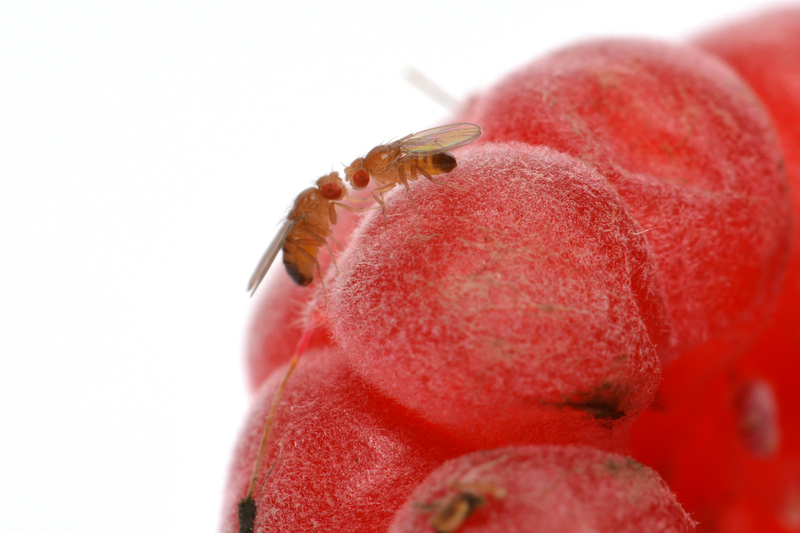Easy Steps to Clean Aluminium Cookware
Posted on 24/09/2024
Aluminium cookware is a kitchen essential due to its durability and excellent heat conduction properties. However, just like any other cookware, it requires regular maintenance to retain its aesthetic appeal and functionality. Cleaning aluminium cookware might seem daunting at first, but with the right steps, it can be done effortlessly. In this article, we will discuss easy and effective steps to clean aluminium cookware, tips to maintain them, and the pros and cons of using aluminium cookware.
Understanding Aluminium Cookware
Before diving into the cleaning process, it's crucial to understand the material we are dealing with. Aluminium is a lightweight, corrosion-resistant metal that is widely used in cookware. It heats up quickly and evenly, making it a popular choice for pots, pans, and baking sheets. However, aluminium is prone to scratching and can react with acidic foods, which is why it often comes with a protective layer or anodized coating.

What You'll Need
To clean aluminium cookware effectively, you will need the following items:
- Warm water
- Mild dish soap
- Soft sponge or cloth
- Baking soda
- Lemon juice or vinegar
- Non-abrasive scrubber
Step-by-Step Cleaning Process
1. Initial Rinse
Start by rinsing the aluminium cookware with warm water. This helps to remove any loose food particles and makes the cleaning process more straightforward.
2. Soak in Soapy Water
Fill your sink with warm water and add a few drops of mild dish soap. Place the cookware in the soapy water and let it soak for about 15-20 minutes. This will loosen up any stubborn stains or food residues.
3. Gentle Scrubbing
After soaking, use a soft sponge or cloth to scrub the cookware gently. Avoid using abrasive materials as they can scratch the aluminium surface. Focus on areas with stubborn stains or burnt food.
4. Baking Soda Paste
For tougher stains, create a paste using baking soda and water. Apply the paste to the affected areas and let it sit for a few minutes. Then, scrub gently with a non-abrasive scrubber.
5. Acidic Solution
Mix equal parts of lemon juice or vinegar with water. Apply the solution to the stained areas and allow it to sit for about 10 minutes. The acidic nature of lemon juice or vinegar helps in breaking down the stains and restoring the shine of the aluminium.
6. Final Rinse and Drying
Rinse the cookware thoroughly with warm water to remove any soap or cleaning solution residue. Dry it immediately with a soft cloth to prevent water spots and oxidation.
Maintenance Tips for Aluminium Cookware
- Avoid using metal utensils to prevent scratching the surface.
- Do not wash aluminium cookware in a dishwasher as the harsh detergents can cause damage.
- Regularly clean the cookware to prevent buildup of stains and food residues.
- Store the cookware in a dry place to avoid moisture-related issues.
Pros and Cons of Aluminium Cookware
Pros
- Excellent heat conductivity
- Lightweight and easy to handle
- Cost-effective compared to other materials
- Corrosion-resistant when maintained properly
Cons
- Can be easily scratched
- Not suitable for induction cooktops unless it has a magnetic base
- Can react with acidic foods, affecting taste and appearance
Tips for Long-Lasting Aluminium Cookware
- Season your aluminium cookware regularly to create a natural non-stick layer.
- Avoid storing acidic foods in aluminium pots or pans for extended periods.
- Apply a thin layer of vegetable oil after cleaning to prevent oxidation.
- Regularly inspect your cookware for damage and address any issues promptly.

Takeaways
Aluminium cookware is a versatile and valuable addition to any kitchen. Proper cleaning and maintenance are crucial to ensuring its longevity and performance. By following these easy steps and tips, you can keep your aluminium cookware looking shiny and efficient for years to come.
Conclusion
Cleaning aluminium cookware does not have to be a challenging task. With the right approach and materials, you can easily maintain its appearance and functionality. Understanding the pros and cons, adhering to regular maintenance tips, and using gentle cleaning methods will help you make the most out of your aluminium cookware.
By investing a little time and effort, you can enjoy the benefits of this durable and heat-efficient cookware, making your cooking experience more enjoyable and efficient.






